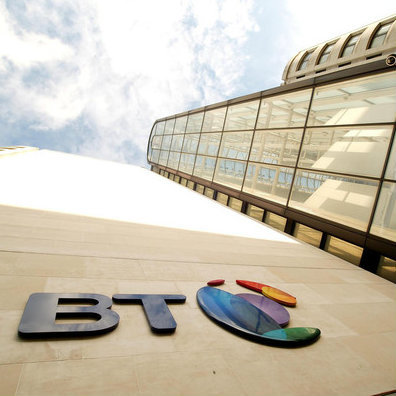
UK authorities appear to have called the operators' bluff. Just a few hours after the government resisted all lobbying efforts and banned Huawei from the country's 5G market, BT said the eviction of the controversial Chinese vendor would not prove so costly or disruptive after all.
Howard Watson, BT's chief technology officer, told UK officials last week that a total 5G ban would cost his business up to £600 million ($757 million) in "rip-and-replace" fees. Yesterday, the operator said the entire overhaul could be done for about £500 million ($630 million), its previous cost estimate of a cap restricting Huawei to 35% of the 5G network.
The explanation seems to be the late deadline of 2027 for the removal of Huawei from operators' 5G networks. Over such a long period, companies would be replacing network equipment in any case, meaning the incremental costs are relatively low.
Gone, too, are the warnings about service disruption, including blackouts. "We believe the timescales outlined will allow us to make these changes without impacting on the coverage or resilience of our existing networks," said Philip Jansen, BT's CEO, in a statement.
BT, however, had previously neglected to mention that a protracted phase-out of the Chinese vendor would reduce the bill. It is also now insisting that a ban will not seriously upset its original 5G ambitions, even though it had warned authorities of delays if Huawei were shut out – regardless of the timescale for its eviction.
The government move, said Jansen, "will also allow us to continue to roll out our 5G and full fiber networks without a significant impact on the timescales we've previously announced."
Analysts are weighing in with their own assessments of the impact, and they mainly seem to agree it is minor. In a research note obtained by Light Reading, Barclays said the update was "consistent with our view that most equipment is renewed every five to seven years, and so the net impact of a vendor swap should be limited, and included in maintenance capex – TDC/Denmark is a good example, with two full network swaps in the past ten years, and no discernible impact on capex."
In a blog, Richard Windsor, an analyst at Radio Free Mobile, said the main effect was likely to be a slight increase in the cost of network equipment, due to the loss of Huawei as a competitor. He also takes issue with BT's earlier argument that it ideally needs seven years to replace Huawei.
"A case study by Huawei showed that it was able to complete a 6,000-cell-site migration in Norway in ten months, begging the question as to why it will take the UK seven years," said Windsor.
Want to know more about 5G? Check out our dedicated 5G content channel here on Light Reading.
The industry is still awaiting an update by Vodafone, which last week told UK politicians a ban would cost "billions" despite the fact Huawei products are used at only about 6,000 sites, compared with around 12,500 in BT's network. Even if Vodafone's equipment is newer, a bill that is at least eight times BT's on a per-site basis makes little sense. With the 2027 deadline, it is even harder to fathom.
Yet Vodafone has a lot to lose if it plays down the expense and hassle. In other European markets, it is even more heavily reliant on Huawei's products than it is in the UK, as a recent study by Strand Consult revealed. In Germany, about 55% of Vodafone's radio access network products are provided by Huawei, according to that study, while in Italy around half Vodafone's network is Huawei-built. In both countries, officials now have reservations about the Chinese firm.
If the UK provides evidence that banishing Huawei is not the fire-and-brimstone scenario many have feared, other countries will feel emboldened as they consider moves against the Chinese vendor. That would be dire news for Huawei, and an unwelcome development for the service providers so attached to its products.
Related posts:
— Iain Morris, International Editor, Light Reading
About the Author(s)
You May Also Like












